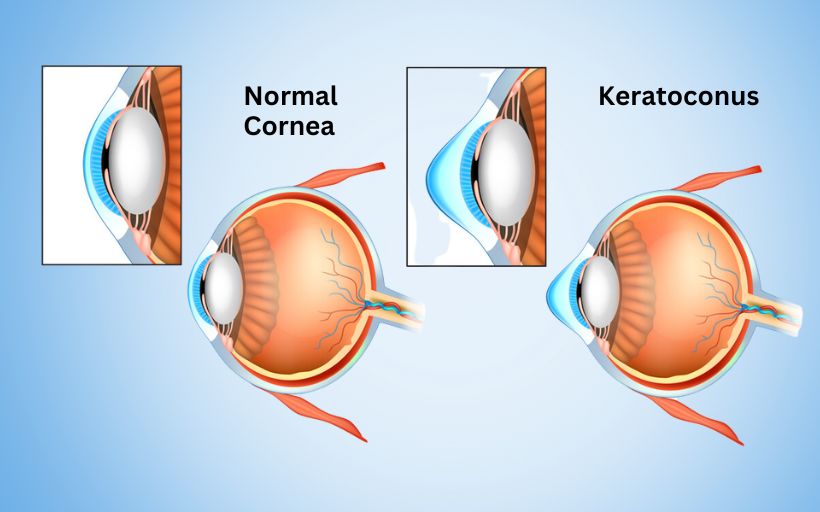Your cornea is the clear, dome-shaped surface that protects your eye and focuses light, making it crucial for vision. But what happens when something goes wrong? An abnormal cornea can disrupt your vision and lead to discomfort or even severe eye conditions. Understanding the symptoms, causes, and prevention can be your first step toward keeping your eyes healthy.
Symptoms of an Abnormal Cornea
The signs of an abnormal cornea can vary but typically include:
- Blurred Vision: Everything looks foggy, like trying to see through frosted glass. This could be an early sign of corneal swelling or scarring.
- Redness or Swelling: Persistent redness might mean inflammation of the cornea, also known as keratitis.
- Light Sensitivity: Bright lights may feel uncomfortable or cause pain, signaling potential corneal issues.
- Frequent Tearing: Non-stop watering without a clear reason may indicate an abnormality in the cornea.
- Eye Pain or Foreign Body Sensation: Feeling like something is stuck in your eye, even when it’s clear, is a common symptom of corneal problems.
If you are experiencing any of the above symptoms, it’s important to consult an eye specialist in Chinchwad at Omkar Eye Hospital to determine the cause and appropriate treatment.
Causes of an Abnormal Cornea
Several factors can lead to an abnormal cornea, including:
- Infections: Bacterial, viral, or fungal infections can harm the cornea. Contact lens wearers, for example, are at a higher risk of bacterial keratitis.
- Trauma or Injury: Accidents like a poke to the eye or exposure to harsh chemicals can cause abrasions or scarring on the cornea.
- Keratoconus: A condition where the cornea thins out and bulges into a cone shape, distorting vision.
- Dry Eyes: Inadequate tear production can damage the corneal surface, making it prone to irregularities.
- Eye Surgery Complications: While rare, procedures like LASIK can sometimes result in corneal abnormalities.
Prevention is the Best Cure: Tips for Healthy Corneas
Taking preventive measures can keep your corneas healthy and problem-free:
- Protect Your Eyes: Always wear protective eyewear when playing sports or working in hazardous environments.
- Practice Good Hygiene: Clean your contact lenses properly and avoid sleeping in them unless directed by your doctor.
- Avoid Rubbing Your Eyes: Rubbing can cause micro-tears and infections, especially when your hands aren’t clean.
- Stay Hydrated: Drinking plenty of water helps maintain adequate tear production.
- Visit an Eye Specialist: Regular check-ups at an eye hospital in Chinchwad can help catch issues early and keep your eyes healthy.
When to See a Doctor
If symptoms persist, don’t ignore them. A quick visit to an eye hospital in Chinchwad can make all the difference. Specialists can perform detailed tests, like corneal topography or slit-lamp exams, to diagnose and treat the problem.
Remember, your cornea may seem small, but its impact on your vision is monumental. Keeping an eye out (pun intended) for symptoms and understanding the causes can help you prevent corneal abnormalities. Prevention is always better than cure when it comes to your precious eyesight.


